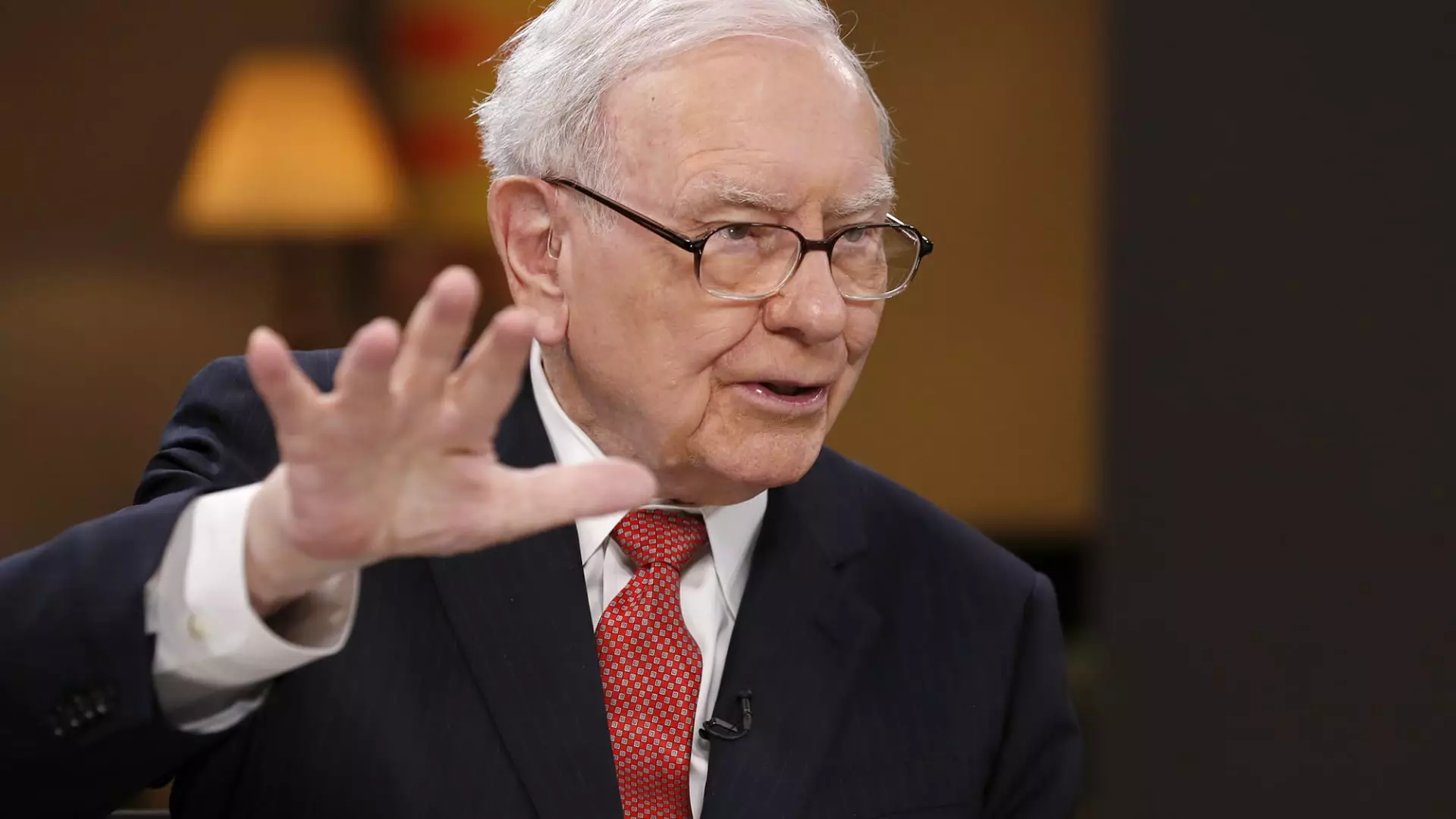Warren Buffett is a figure synonymous with investment brilliance; his name evokes images of strategic foresight and unparalleled success in the financial world. Yet, beyond the impressive $150 billion fortune he has amassed through his stewardship at Berkshire Hathaway, Buffett embodies a contrasting narrative regarding wealth and its impact on future generations. As he navigates his 94th year, he presents a controversial stance against what he terms “dynastic” wealth—wealth that perpetuates familial legacies through generations, often leading to unexpected consequences.
In a recent decision that sends ripples across the realms of both finance and philanthropy, Buffett has named three independent trustees to manage his charitable endeavors, while simultaneously donating an impressive $1.1 billion in Berkshire Hathaway stock to four family foundations. This move exemplifies Buffett’s commitment not only to charity but also to the principle that wealth should not simply be inherited without purpose. Rather than leaving behind a vast inheritance for his children—ages 71, 69, and 66—Buffett has pledged to give away 99% of his fortune, viewing philanthropy as a means of creating lasting societal value rather than facilitating familial wealth accumulation.
Buffett’s reasoning is multifaceted. He articulates concerns about how wealth can inadvertently hinder personal growth and affect familial relationships, fearing that excess wealth might cultivate complacency amongst heirs. “I’ve never wished to create a dynasty or pursue any plan that extended beyond the children,” Buffett explains, highlighting a refreshing departure from traditional wealth preservation philosophies espoused by many affluent families. Instead of simply passing down his fortune, he advocates for a model centered on proactive, impactful giving, urging successors to engage directly with charitable initiatives.
Buffett’s reflections on generational wealth touch upon a more significant societal dilemma: the unpredictability of future inheritances. As he aptly notes, it is impossible to predict how successive generations will handle substantial financial assets, especially in light of shifting socio-economic landscapes. This uncertainty raises valid questions about the efficacy of wealth transmission—can future heirs be trusted to manage that wealth responsibly and ethically, given the complexities of the philanthropic environment?
By appointing three trustees—whose identities remain undisclosed—Buffett prepares a safeguard for the future distribution of his wealth, emphasizing the importance of a caretaker model that transcends familial ties. “They are also somewhat younger than my children,” he remarks, indicating a strategic consideration of age and perspective in appointing these successors. This decision underscores his belief in ensuring that the values associated with his wealth endure, even if his immediate family members are not the ones to carry that mantle.
Central to Buffett’s philosophy is the significance of values imparted to his children, stemming from their mother. He articulates a sense of pride in their financial comfort, yet he emphasizes that they are not consumed by it. This perspective is crucial; it speaks to shaping character beyond financial means. As Buffett succinctly puts it, his children have “learned much about large-scale philanthropy and human behavior,” alluding to a balanced approach to money that fosters both responsibility and empathy.
The legacy of Buffett’s wealth—what he ultimately leaves behind—will not merely be in numerical value but in the foundational principles of philanthropy, emotional intelligence, and strategic giving. As he continues to navigate his philanthropic journey, Buffett not only stands as a titan of investing but also as a progressive thinker, actively reshaping the discourse on wealth distribution and family legacies.
In an age where wealth can sometimes blind the fortunate, Buffett’s deliberate avoidance of dynastic wealth not only reframes the conversation around legacy but also serves as a call to action for those with substantial means to consider how best to utilize their fortunes for the greater good. His life and decisions offer a powerful reminder that true legacy is not measured by the size of an inheritance, but by the impact one can create on society.

